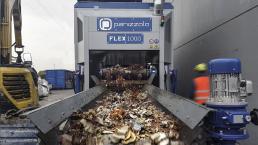CIRCULAR ECONOMY AND GREEN BUSINESS: WHAT'S NEW FROM THE EUROPEAN UNION
FOR WASTE TREATMENT COMPANIES?
In case of activities that operate in the valorisation of waste and scrap, further help for economic recovery could come from the so-called "Green Finance".

EU Commission President Von der Leyen in recent weeks has stressed maximum closeness to national governments, especially to Italy which represents a virtuous example in the management of the COVID-19 crisis. Economy remains a priority to be restarted, safeguarding companies and the labor market.
The next moves from Rome and Bruxelles will therefore be crucial to stabilize the markets and promote investments that are able to bring liquidity back to the corporate coffers. In case of activities that operate in the valorisation of waste and scrap, further help for economic recovery could come from the so-called “Green Finance”.
Born in 2007 with the launch of the first eco-bonds, the green business or Green Finance has the aim of financially supporting those projects that bring an advantage to the environment. After a slow start, there has been an increase in investors in the last decade and the consequent need for tighter controls. The European Commission is moving in this direction and, in the first months of 2020, it approved an action plan in favor of the Circular Economy.
Analyzing this document you immediately notice two strategies of fundamental importance. On the one hand, the regulation wants to disconnect economic growth with the extraction of new raw materials and consequently promote End-of-Waste recycling cycles. In doing so, the EU aims to keep resources within the economic circuit as much as possible and implements the appeal launched by the BIR during the last congress in Budapest. The regulation currently includes product categories such as household appliances, electronics and end-of-life vehicles, with the possibility of widening the scope.
Another point of the approved document is the “green taxonomy” to classify which financial investments can bear the “sustainable” label. Taxonomy is the fundamental basis in the green business regulatory package. It will allow to create a common language for investors and will allow environmental scores to be given to projects.
With this action plan, we want to direct greater capital flows towards green investments. Clearer rules, transparency and credibility will be the trump cards to incentivize investors and avoid the risk of greenwashing (i.e. a fraudulent method that uses ecology only as a facade).
This plan was approved in early March and scheduled enough long times to take effect. However, COVID-19 emergency, that is passing through Europe in recent weeks, has radically changed priorities.
Today the greatest challenge is to find the right stimuli to restart the economy. The recent regulation for the Circular Economy could become, if implemented in a short time, a source of economic recovery for waste treatment companies. The future of the sector, as pointed out both by the BIR and our company, lies in the complete valorisation of waste and reintroduction of second raw material into the production cycle. It will therefore be necessary for the EU to review the implementation agenda in order to concretize the plan as soon as possible.